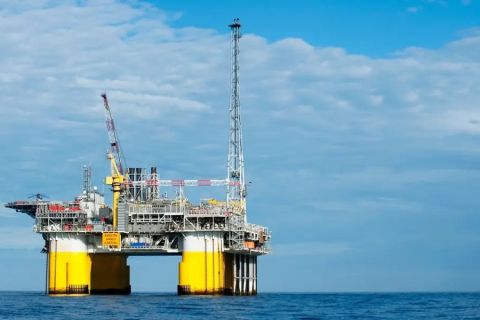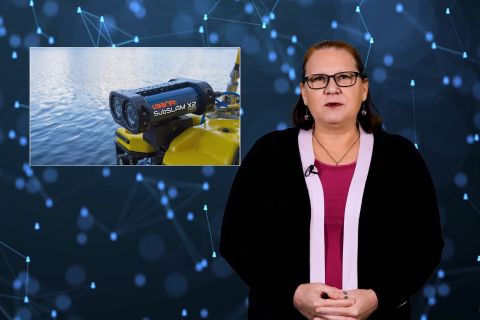
Potential investors have opportunities to bid on blocks during three rounds this year. (Source: Shutterstock.com)
With interest high in oil and gas opportunities offshore Brazil, the country known for its deep water and huge presalt reserves is preparing for another set of auctions this year.
The main one, according to Marcio Felix, secretary of Brazil’s ministry of mines and energy, is expected to be the auction for acreage in the Transfer of Rights area. Scheduled for Oct. 28, the auction will offer production-sharing contracts for the Atapu, Búzios, Itapu and Sépia fields, which together are believed to hold up to 15 Bboe.
“I am confident the Transfer of Rights bidding round shall be a turning point in Brazil’s offshore history,” Felix said at OTC 2019, noting the round will take place a day before OTC Brasil. Minimum profit oil ranges from 19.82% for Itapu to 27.65% for Sépia, with fixed signature bonuses ranging from $448 million for Itapu to about $17 billion for Búzios.
The auction for surplus hydrocarbon resources comes after more than five years of discussion, which resulted in an agreement between the Brazilian government and state-run Petrobras concerning the area. At issue was a contract, signed in 2010 by Petrobras, in which the government exchanged exploratory rights over the presalt area for Petrobras equity.
Oil price changes through the years impacted contract revisions when the Transfer of Rights fields became commercially viable. News of the two agreeing to a revised contract, which granted Petrobras $9.058 billion, came in April, paving the way for the October auction.
Potential investors also have an opportunity to bid on blocks during the 16th bid round, scheduled for Oct. 10. During this round, taking place under the concession model, 36 blocks spanning 29,912 sq km (11,549 sq miles) will be offered. Areas include the Pernambuco-Paraiba, Jacuípe, Camamu-Almada, Campos and Santos basins. The auction is a huge investment opportunity that has already attracted investors worldwide given some of the blocks’ proximity near the presalt polygon or near recent oil discoveries, Felix said.
The sixth production-sharing presalt round will take place Nov. 7 when bids for the Aram, Bumerangue, Cruzeiro do Sul, Sudoeste de Sagitário and Norte de Brava will be taken. Minimum profit oil ranges from 22.87% to 36.98%. Petrobras has right of first refusal and operatorship (30% working interest) in the Aram, Sudoeste de Sagitário and Norte de Brava blocks.
“I’m 100% sure, and I say that on behalf of Minister [Bento] Albuquerque, that the bidding rounds to be held in Brazil in the second semester shall be a breakthrough in the world’s oil industry,” Felix said.
Felix gave the speech for Albuquerque, who could not attend OTC but delivered a video message to attendees from what he called the oil and gas capital of the world, Rio de Janeiro.
“The giant oil volumes of those fields will attract all the participation of the major companies in those rounds,” Felix said, adding this means job generation for Brazil.
This comes as Brazil works to overhaul its natural gas sector, aiming to put gas—including associated gas from presalt fields—to use.
“We have before us an unprecedented opportunity to promote a revolution in the gas sector,” Felix said, comparing it to the transformation made by shale gas in the U.S.
The so-called “New Gas Market” is based on pillars that include fostering competition, integration of gas supplies to electricity and industry network, and regulatory harmonization between federal and state governments. The expected results, according to the presentation, include “monetizing natural gas from presalt, Sergipe Alagoas and other basins, attracting midstream investments, making energy affordable by promoting natural gas fueled power plants and fostering industry.”
Recommended Reading
TGS, SLB to Conduct Engagement Phase 5 in GoM
2024-02-05 - TGS and SLB’s seventh program within the joint venture involves the acquisition of 157 Outer Continental Shelf blocks.
2023-2025 Subsea Tieback Round-Up
2024-02-06 - Here's a look at subsea tieback projects across the globe. The first in a two-part series, this report highlights some of the subsea tiebacks scheduled to be online by 2025.
StimStixx, Hunting Titan Partner on Well Perforation, Acidizing
2024-02-07 - The strategic partnership between StimStixx Technologies and Hunting Titan will increase well treatments and reduce costs, the companies said.
Tech Trends: Autonomous Drone Aims to Disrupt Subsea Inspection
2024-01-30 - The partners in the project are working to usher in a new era of inspection efficiencies.
Drilling Tech Rides a Wave
2024-01-30 - Can new designs, automation and aerospace inspiration boost drilling results?






